Managing hair loss with age can be quite challenging for both men and women. Let’s look at some of the ways in which we can prevent hair loss in our senior years
Contents
With aging comes many changes, and there is no exception for the hair. The texture of the hair turns gray, and the hair strands become thin. Many factors contribute to hair loss, and Alopecia is one of the common reasons for hair loss.
Getting yourself treated adequately and understanding all the essential tips and tricks is indispensable. By the age of 60 around 80% of women suffer from some sort of hair loss.

Are you also suffering from too much hair loss? Do you want to cope up with it? 16% of men at the age of 16-29 suffer from moderate to extensive hair loss. Breath easily and stay tuned in reading this article as you will come across some critical factors which contribute to hair loss and ways to overcome it.
Factors That Lead To Hair Loss
Age
As we age, the life cycle of our hair reduces. After the hair fall, there is a growth of shorter and finer new hair. However, as time passes, everybody goes through hair loss due to aging and other factors.
Nonetheless, as we lose the hair and become thinner, it never regenerates as women age. Menopause plays a significant role in hair fall.
Once they enter their fifties, the production of sex hormones reduces in the body. This hormone is responsible for the stimulation of follicle fibers, and Melanin is responsible for hair color.
As we age, the pigment cells present in our hair strands die. Due to this reason, the Melanin present in our hair reduces, and our hair grays.
Going Through Stressful Events
Elders are more likely to suffer from hair thinning and hair loss after an emotional or physical shock in their life, but this type of hair loss is temporary, and regrowth of hair is possible.
Radiation therapy
When elders suffer from diseases like cancer, they have to undergo radiation or chemotherapy to cope with this disorder. Severe hair loss can occur due to radiation therapy, and the hair may not grow back as it was before.

Supplements and medications
We suffer from various diseases due to reduced metabolism and other factors as we age. Hair loss may occur as a side effect of drugs that can be used to treat disorders like cancer, depression, high blood pressure, heart problems, and arthritis.
Family history
Heredity can also be the leading cause of hair loss. Androgenic Alopecia is a condition that occurs with aging, and it is also called male pattern baldness and female pattern baldness.
Androgenic Alopecia is known to occur over a period. It reduces hairline and creates bald patches in men. Women go through thinning of hair along with the crown of the scalp. Alopecia is curable and can be treated with the proper guidance.
Medical Conditions and Hormonal Changes
Hormonal changes result in hair loss. These hormonal changes may occur due to childbirth, menopause, or thyroid problems. Scalp-related infections like ringworm and trichotillomania may result in hair loss in the elders.
Telogen effluvium
Telogen effluvium is a condition in which a person suffers from hair loss and can have bald patches. Telogen effluvium occurs when a person suffers from severe stress resulting in bald patches on the scalp.
Telogen effluvium may occur to a person due to major surgery or illness. When a person suffers from hyperthyroidism or hypothyroidism, protein deficiency takes a combination of medicines, goes through the process of childbirth, gets a severe infection, and extreme psychological stress, then hair loss is also evident.
The person is more likely to shed more hair after one or two months of shock or accident. But the hair which Falls due to telogen effluvium comes back within six months to 1 year.
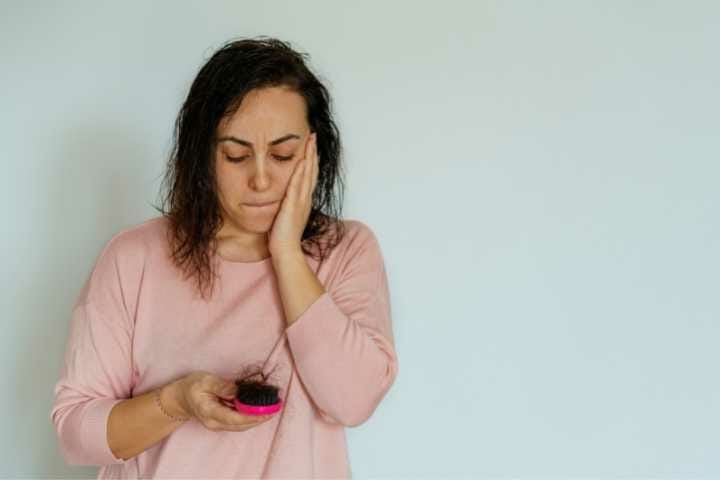
Alopecia
Alopecia is an organ-specific autoimmune disease. It is one of the most common causes of hair loss in the elders. If it’s in the initial stages then it can easily be cured using some hair products. But if it has advanced it needs doctor’s care and attention. However, in seniors it shows mild disease severity and favorable treatment response.
All About Alopecia Areata
Alopecia areata is an immune system disorder in which hair falls in small patches. In the earlier stages, the small patches may not be noticeable, but they become apparent as the hair fall enhances over the period.
It slowly develops over the period and may reoccur after hair growth. If the condition is left untreated, it results in complete hair loss, also known as Alopecia Universalis. There is no cure to treat Alopecia areata. Still, specific treatments may help in the regrowth of the hair, and you can prevent hair loss.
If elevated stress is the underlying cause of the alopecia areata, then there are ways to cope with stress-related hair loss.
What are the different types of alopecia areata?
Alopecia areata (spots)
Alopecia areata is a form of hair loss or in the form of small patches on the scalp. It may occur in other places of the body alopecia areata including alopecia totalis and Alopecia Universalis, but more likely people suffer from patchy alopecia areata.
Lasting patchy alopecia areata
Long-lasting patchy alopecia areata is a kind of alopecia areata that remains into a patch and doesn’t proceed to alopecia totalis as well as Alopecia Universalis.
Unexpected alopecia areata
Unexpected alopecia areata results in unexpected hair loss on the entire scalp. It might become difficult to diagnose diffuse alopecia areata because it may look like telogen effluvium or male as well as female structured hair loss.
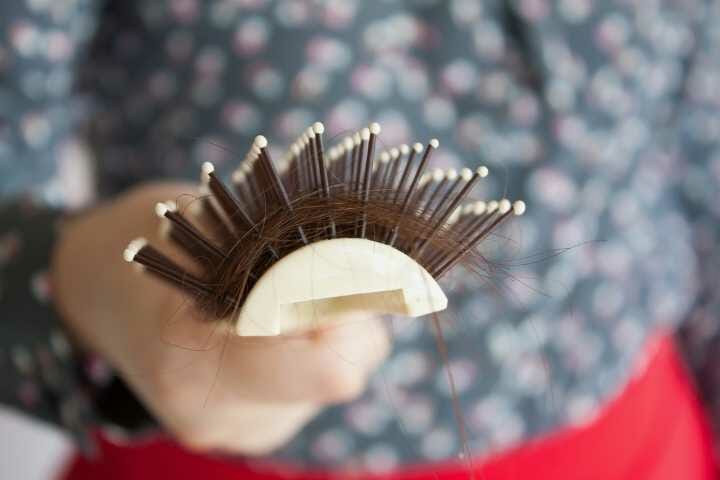
Occipital patterned alopecia
Occipital patterned alopecia includes hair loss at both the sides and downside back of the scalp. This kind of heat loss occurs in a band-like structure, and it becomes tougher to deal with this kind of Alopecia. Since it doesn’t react immediately to the medications, we cannot interpret the growth of the hair, and it may occur over and over again. You can consult your doctor to get yourself treated adequately.
Treatment of alopecia areata
Alopecia areata has no proper cure and treatment, but there are ways to stimulate hair growth and prevent it so that it doesn’t occur again.
Topical agents
You can rub the topical agents on your help to promote hair growth.
- Rogaine(Minoxidil): Minoxidil is an OTC drug that can be applied twice or thrice to your eyebrows, beard, or scalp. Minoxidil can be applied to your affected area, but you need to have patience, and it might take a year-long to see the results. If you have alopecia areata at a higher stage, this topical agent might not be helpful because it is useful only for people with limited alopecia areata.
- Drita scalp (Anthralin) is a topical agent that irritates the skin to stimulate hair growth.
- Topical immunotherapy is a technique in which a chemical is applied to the skin, which results in an allergic rash. This resembles the poison of oak and stimulates hair growth within six months after its usage. But you need to continue its treatment to retain the hair growth.
- Many corticosteroid creams can be applied to the scalp. These corticosteroid creams are responsible for decreasing the inflammation in the hair follicle. Available corticosteroid topical agents are Impoyz, lotions, and ointments recommended by the doctor.
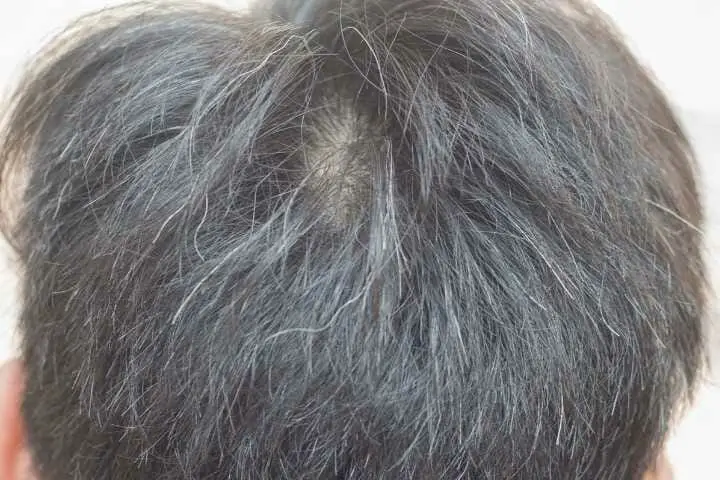
Injections
Another way that assists in the regrowth of the hair is the usage of steroid injections. If you suffer from patchy and mild Alopecia, you can use this steroid injection to stimulate hair growth. Affected areas are injected with tiny needles that inject a steroid into the affected areas. These injections can be used every one or two months to regrow the hair.
Oral treatments
Oral treatment is used to overcome alopecia areata, but you should use it with the proper recommendation of the doctor as it may result in any side effects.
The immune system doesn’t respond properly when a person suffers from alopecia areata. Thus, immunosuppressants are used in treating alopecia areata. Immunosuppressants like cyclosporine as well as methotrexate can be used.
These medicines work by reducing the immune system’s response, but you cannot use them for a longer period since it results in side effects like kidney damage, high blood pressure, and a type of cancer named lymphoma. You may use cortisone tablets if you suffer from extensive alopecia areata, but there are high chances of enduring various side effects.
Light therapy
Light therapy is a way in which UV light is used along with psoralen to treat alopecia areata. Light therapy is also known as phototherapy. It is useful in the treatment of alopecia areata and has proved to be useful into it.
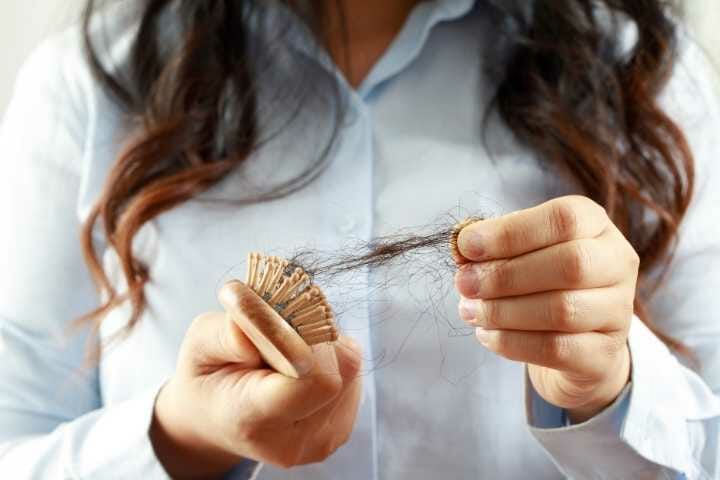
What are the symptoms of Alopecia Areata?
The most prominent alopecia areata is hair loss and bald patches on the scalp. A person might suffer from alopecia areata in different places like eyebrows, eyelashes, beards, and on the face and other parts of the body. Some people undergo hair loss in very few places, and some might notice it in many spots. You might notice sudden hair loss or loss of eyelashes or eyebrows.
Depending upon the cases, some people may notice extensive hair loss. Some symptoms of different types of Alopecia are given by
- All the hair loss on the skin is also known as alopecia totalis.
- Total hair loss from all body parts is known as Alopecia universally.
People who suffer from alopecia areata may lose hair from the legs, arms, and scalp, but not from the chest.
What are the causes of Alopecia?
The immune system responds against foreign invaders, and harmful bacterias to protect our bodies and defend us. Alopecia areata occurs when our immune system mistakenly attacks the body’s hair follicles instead of attacking the foreign invaders. Hair growth occurs from the hair follicles. As the immune system attacks the hair follicles and becomes smaller in size, and thus it leads to reduced hair production and hair loss.
But there is no exact reason behind the appearance of this condition. Alopecia areata is known to occur in people who have a family history of Alopecia or autoimmune disorders such as rheumatoid arthritis and Type 1 diabetes. Genetics also contributes to the occurrence of the alopecia areata.
Certain environmental factors are also responsible for Alopecia in the people who are predisposed to it.
How To Manage Hair Loss With Age?
If you lose your hair completely, you can stimulate partial hair growth, but it isn’t easy to completely regrow hair.
Protein consumption
Hair strands are composed of protein, and a deficiency of protein in the body leads to hair loss. Biotin is responsible for producing a protein called Keratin which promotes hair growth, and protein is responsible for strong and healthy hair.
You can include rich protein sources like chicken, meat, soybean, paneer, tofu, and kidney beans in your diet, and Whey protein is a popular way to fulfill your protein requirements.
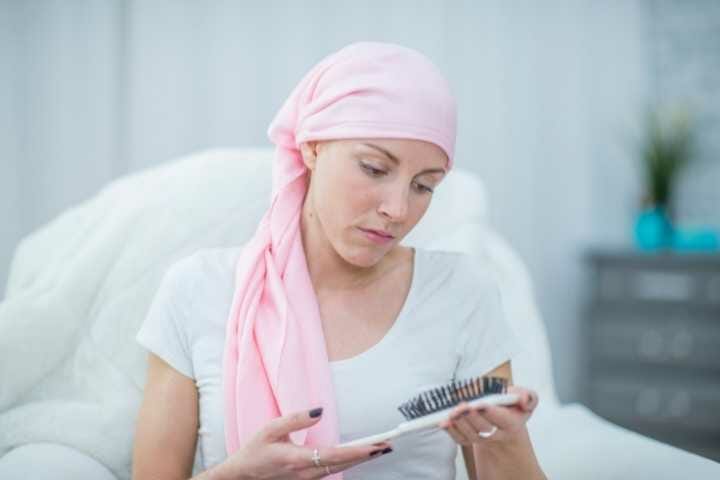
Omega 3 fatty acids
Omega 3 fatty acid is an essential component for shiny and lustrous hair and skin, and nails. Omega 3 is available in a wide range of food like flax seeds, walnuts, and fish like mackerel and sardines. (EPA) Eicosapentaenoic acid and (DHA) docosahexaenoic acid are the Omega 3 fatty acids crucial for good health.
You can get EPA from vegetarian food sources; however, your body can produce a small amount of DHA from the resources of EPA present in the body. If you do not get your daily Omega 3 fatty acids requirement through your diet, you can include supplements like fish liver oil or cod liver oil.
Proper Treatment For Anemia
Anemia is a common problem that occurs in women. Excessive hair loss due to anemia in women is a common problem due to iron deficiency or after an injury or accident.
You can consult your doctor and get medications or supplements to fulfill your daily iron requirements. You can add some good sources of iron to your diet like spinach, beetroot, chicken, and fish.
Choose Appropriate Hair Products
Choose the appropriate hair products and look for what suits you best. If you have a dry scalp or oily scalp, then you can consult your doctor and get yourself a good shampoo, as well as a conditioner. Don’t use shampoos that contain paraben as they irritate your scalp and result in hair loss.
Don’t Wash Your Hair Too Frequently
Do not wash your hair frequently because it may lose the essential oil, as it becomes challenging to retain the moisture.
You can wash your hair twice in winters and thrice in summers when it becomes greasy. But do not wash your hair regularly since it can damage it to a greater extent due to the excessive use of shampoo and conditioners.
Do Not Use Blower Too Often
Do not use heat and chemical products frequently on your hair that can damage your hair to a greater extent. Make sure that you apply good products to your hair.
Coconut Oil
According to a study in 2018, scientists reveal that coconut oil can protect you from UV rays exposure and protect your hair and skin from damage. It consists of Lauric acid, which binds the protein and protects your hair strands from breaking. It promotes hair growth, and a good massage can enhance the blood flow on the scalp.
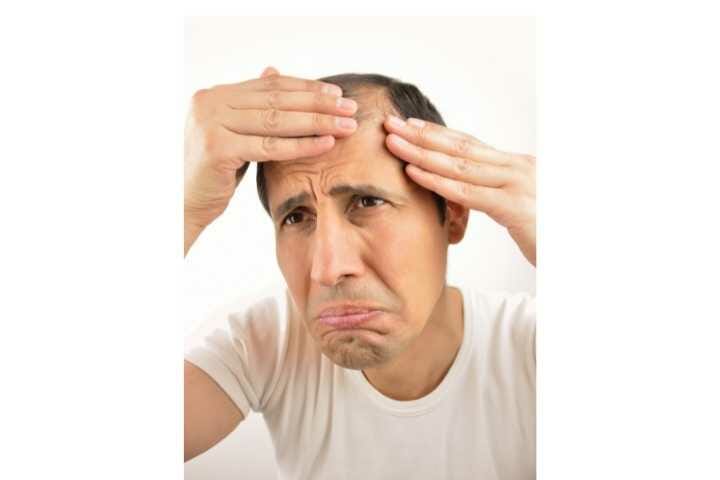
Frequently Asked Questions
Can age-related hair loss be reversed entirely over the period?
Age-related hair loss cannot be wholly reversed as it is hereditary or occurs due to another reason. People who suffer from diseases earlier can be cured as partial hair growth can be stimulated. However, it is difficult to reverse hair loss completely.
Can I grow back hair correctly after thinning?
If hair loss or hair thinning is due to genes or a genetic factor responsible for it, then there are very few chances of regrowth of hair again properly. But if your hair thinning is due to nutrition deficiency or other disorders like alopecia areata, telogen effluvium, then the hair can grow back properly by taking proper medications and consulting the doctor at the right time.
Does hair loss occur after menopause?
In women, it is pretty normal to suffer from extreme hair loss in perimenopause and Menopause period. The hormones responsible for preventing hair from thinning are progesterone and estrogen after menopause. The hormone levels begin to decline, and thus hair loss occurs after the Menopause period.
Wrap up
Hair loss doesn’t occur due to one particular reason, and many factors contribute to hair loss. Hair loss with age is quite widespread, but you can prevent your hair from falling by incorporating various tips and tricks like healthy eating, being stress-free, and treating yourself properly if you suffer from any disorder.
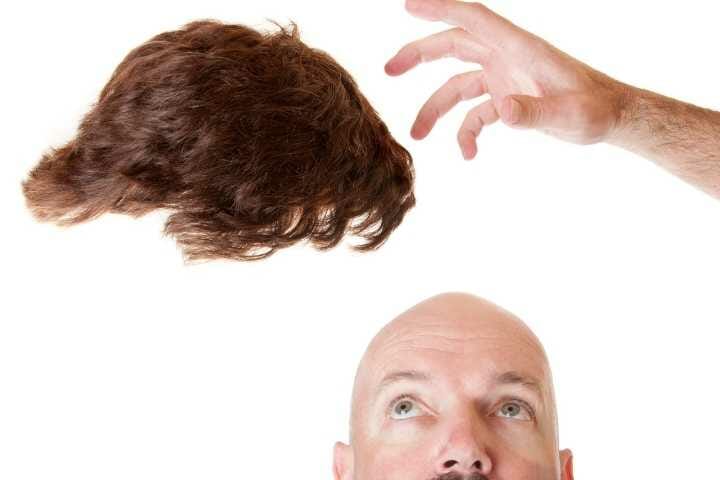
Various immune-related problems are responsible for hair loss. If you are one suffering from hair loss for a long time, then you can have a sigh of relief since you can get all the appropriate information on hair loss into this article, as well as the ways to manage them.
